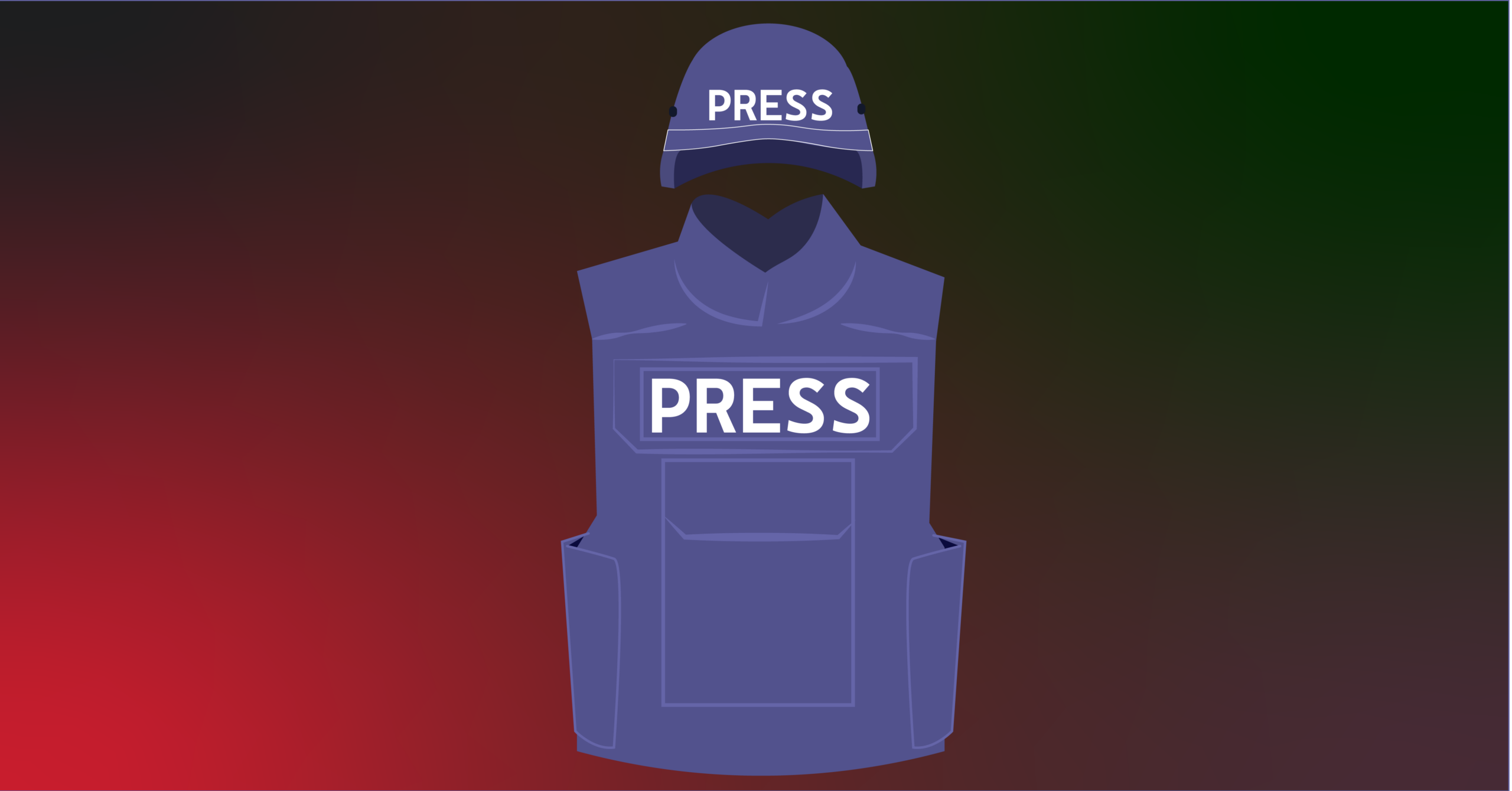Now, more than ever, journalism is under attack
Freedom of speech is being compromised and comes with deadly consequences.
If anything, 2023 unveiled the power of words. The freedom to speak out, criticize, and proclaim your truth is a privilege few enjoy, even though freedom of expression is a protected right under Article 19 of the International Covenant on Civil and Political Rights. Depending on where and who you are, your words, writings, and reporting will make your day-to-day existence precarious. At the very least, you can get censored or lose your job, and at the very most, the safety and livelihoods of you and your loved ones can be threatened. This is the reality for several media professionals—journalists, photojournalists, news reporters, and writers—around the world, but especially in countries with hostile regimes and conflicts.
The remaining months of 2023 saw the highest spike in journalistic fatalities. According to the International Federation of Journalists, 120 journalists and media professionals were killed, with 68 per cent being killed in the context of the genocide in Gaza. October 7 marked a greater escalation between Israeli and Hamas forces, but Israeli aggression has quickly become tantamount to denying access to security, essential goods, and medical services to Palestinian civilians. The Canadian Criminal Code specifically mentions the act of “deliberately inflicting on [a] group conditions of life calculated to bring about its physical destruction” as genocide. Though fatalities have occurred on both sides, the Gaza Ministry of Health cites that 23,469 Palestinians have died from the ongoing conflict and genocide.
I would like, however, to specifically focus on the right to free speech and press freedom that is being so flagrantly violated through the killings of journalists. More journalists simply doing their job of representing the people’s suffering have been targeted and killed in the context of the Palestinian genocide than in any other conflict in the last thirty years. Recently, the Committee of Protected Journalists expressed overwhelming concern over the apparent discriminate targeting of media workers who spend their days sifting through rubble to support humanitarian efforts while also documenting the plight of the Palestinian people.
Discriminate targeting comes in the form of assault, censorship, and arrests of media workers, not to mention the threats of frequent communication outages, lack of personal protective equipment, and airstrikes that dominate the landscape of Gaza. These individuals are being attacked due to the nature of their reporting, which by many pro-Israel accounts has been deemed somehow harmful or politically incorrect.
It is important to acknowledge that beyond Gaza, the attack on journalism is also rampant in other areas of the world. Russia, for example, has a distinct history of prosecuting media workers and other activists who criticize President Vladimir Putin’s regime. Since the inception of the Russia-Ukraine war in early 2022, several journalists have been killed in Ukraine. It is not a surprise that these killings are often localized in countries whose governments control information to maintain a grip on power. I think if anything, the unfolding attack on journalism has shown us that how a government tolerates unfavorable criticism strongly indicates not only their treatment of human rights but also the direction in which they want to take their nation in the future.
Many people on social media have said that the situation in Gaza is “complicated” and that judgements should be reserved because “not all information is known,” with many hesitant to even label it a genocide. I believe these are blanket statements used to excuse people from critically examining the evidence at hand or to clear their conscience. The images we see on social media of dead children, unsanitary medical conditions, and entire streets being destroyed, are and should be enough to convince people that there is nothing so complicated going on that it escapes our judgement and criticism. Yes, political conflicts can be complex, but it is also true that what is happening in Gaza and around the world are unequivocal examples of oppression and genocide, not to mention the most widely documented genocide in recent historical memory.
Still, others might go on to say that Palestinian journalists and other media professionals within our news organizations should not be reporting on such matters, since it presents an ethical issue of bias in objective reporting. Yes, the potential for bias is a problem. But given the circumstances, a journalist’s professional integrity cannot be reduced to their ethnicity. Right now, there is an entire population whose people, culture, history, and future are being threatened into non-existence via inhumane means, and this reality is being readily documented by the selfless labour of journalists, photojournalists, and other media personnel. Working to tirelessly report on these genocidal happenings is not a show of bias; it is a show of necessary compassion and courage.
I was initially hesitant to write about this because of how superfluous it felt. I know I am not making a profound statement by saying that freedom of expression without fear of persecution needs to be protected. That is blatantly obvious. And me writing this will not seriously do anything to protect the words and lives of journalists overseas who are struggling. When I first started thinking about the journalistic crisis, my thoughts were nebulous, and my heart was overwhelmed by an imprecise grief at the injustices happening. However, writing this article has helped me organize my thoughts tremendously and think critically, which proves why the freedom to write is closely tied to the freedom to think and express in the first place.
Right now, I do not think the world has the freedom of speech that is enshrined within international laws. Living in Canada, one might bask in the freedoms we enjoy regularly. However, if freedom of speech and expression is selectively protected, then there is no such freedom in the first place since everything becomes a function of power and privilege. The privilege of being on the “right side of the conflict” and the privilege of having one’s beliefs supported by notions of political correctness, which I think is a leading threat to everyday exercises of free thinking and expression.
I believe that freedom of expression, thought, and press is vital to the health of any society. The world is far from perfect. Our capacity to think independently, express ourselves freely, and write without fear are our only assets in shaping a better future. The fact that the price of words is death and persecution shows us just how powerful words are. Hopefully, it urges us to use our voices as students to think critically and share the stories of people who cannot do it for themselves.
Opinion Editor (Volume 51); Associate Opinion Editor (Volume 50) — Mashiyat (Mash) is a third-year student studying Neuroscience and Professional Writing and Communication (PWC). As this year’s Opinion Editor, Mash hopes to use her writing, editorial, and leadership skills in supporting student journalism in the essential role it plays in fostering intellectual freedom and artistic expression on campuses. When she’s not writing or slaving away at school, Mash uses her free time cooking cultural dishes, striking up conversations with strangers, and being anxious about her nebulous career plans. You can connect with Mash on her LinkedIn.


